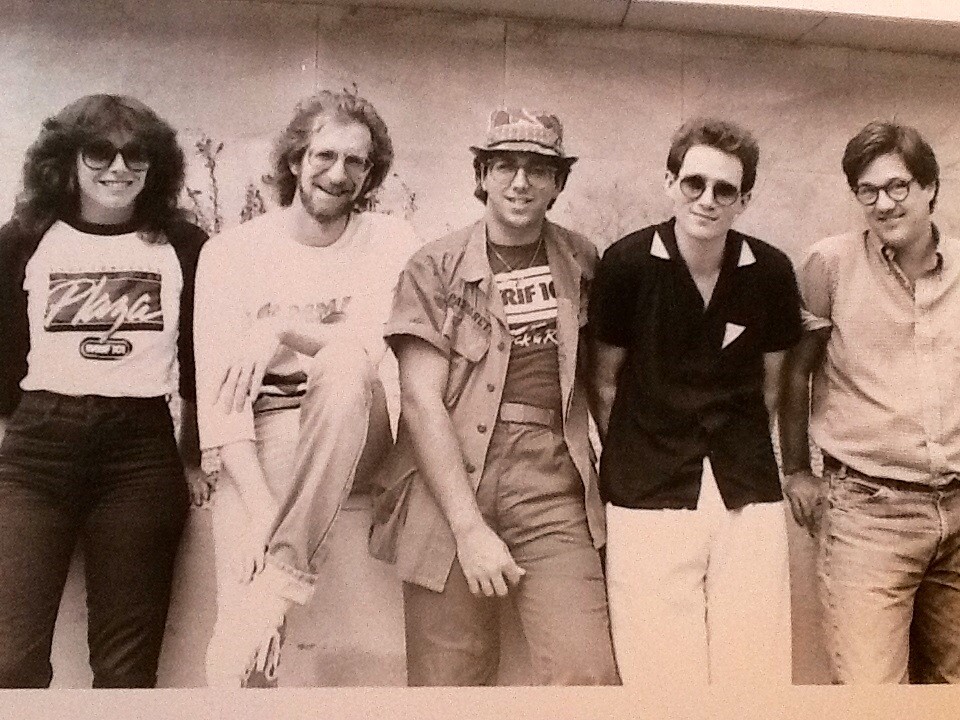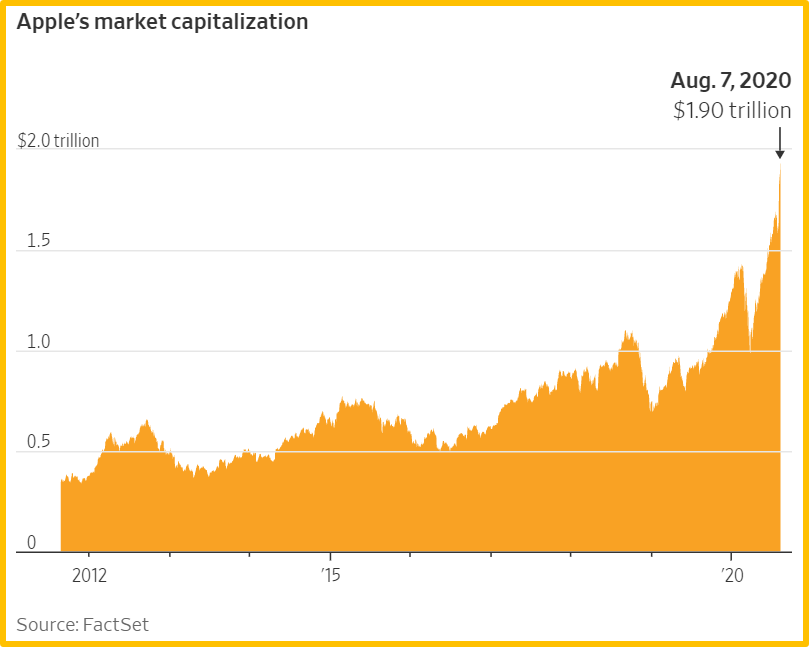
True story.
I’m programming WRIF in Detroit. It’s 1982, and the station is firing on all cylinders following a near-death experience at the hands of Doubleday’s WLLZ.
I’m feeling pretty, pretty good about things, and “bonus time” is coming up. Back then at ABC, GMs had a discretionary bonus pool they could use to spiff employees. There was a set maximum I could receive, assuming I had done an outstanding job. And based on the ratings and other subjective accomplishments (in my mind’s eye, at least), I was due to receive a nice hunk of change. But like the name implied, the amount of my bonus was at the discretion of the station manager, John Hare.
When Judgement Day arrived, I was actually looking forward to receiving a fat check. But when I sat down with John, things didn’t go exactly the way I’d planned.
He was very complimentary about the ratings, even thankful, and mentioned some of the other accomplishments I had pulled off. He reminded me I clearly had some work to do building bridges with the sales department, especially the sales managers. (More on that gnarly topic in another post.)
But when John explained to me I was only going to receive a portion of my bonus that year, I was truly incredulous. Where had I come up short? How had I failed? What could possibly be missing from my stellar performance?
And he hit me right between the eyes:
“I don’t believe your replacement is on staff.”
Like most PDs, I was concerned about the ratings book of the moment, and perhaps the next six months or so. The last thing on my mind was the station’s programming succession plan if I took a powder. (And in fact, I did a year later.)

We talked about the station’s assistant program director and music director – Mark Pasman and Michael Mayer respectively (both pictured left). And John expressed skepticism that either was ready to take over the WRIF “starship” if something happened to me.
And so I walked out of his office disappointed and deflated – and several thousand dollars short of what I had been expecting. But of course, Hare was right.
Great managers don’t just do their jobs spectacularly. They need to have the enterprise and its future in mind at all times. And the very best can answer the tough question, “What if” something happened to me?
Who’s next?
I thought about those words a lot during those next many months, trying to delegate as much as possible to Michael and Mark, while trying in my own dysfunctional way to help them along.
And as it turned out, each had a shot at the PD position after I left. And both did a masterful job while I was flying around signing on Classic Rock stations.
Now as a business owner, the gnawing pressure of having a succession plan has never eased up. There’s an entire TV series, HBO’s spectacular  Succession, that will start its third season of episodes around this tough topic. Loosely based on the Murdoch media family, Succession presents the ruthless, cutthroat side of family businesses, in this case, the diabolical, scheming Roys.
Succession, that will start its third season of episodes around this tough topic. Loosely based on the Murdoch media family, Succession presents the ruthless, cutthroat side of family businesses, in this case, the diabolical, scheming Roys.
Who’s next?
It may be fiction, but those real-life decisions about who will fill the boss’ shoes or pumps happen at companies, businesses, and radio stations all over the world – often with very high stakes.
I thought about that when I read a recent Wall Street Journal article by Tripp Mickle: “How Tim Cook Made Apple His Own.”
It’s a detailed analysis of how the unassuming Cook succeeded the flamboyant Steve Jobs (who reportedly was not a big fan of succession planning). When you think of it, Jobs had to be the toughest CEO to replace, given his amazing impact on the company he co-created.
And when you think about other companies that faltered after an iconic leader stepped down or passed the baton – Microsoft and Bill Gates, GE and Jack Welch, Ford and Alan Mulally – the pressure was on Cook.
If you remember back when Jobs passed away in 2011, the smart money was on Apple to lose its fastball. And when Cook was named to replace him – chosen by Jobs himself – many analysts openly questioned the logic.
After all, the two men were very different. Jobs was the ultimate “product person,” accustomed to throwing the long bomb. His presentations on the Apple stage were sheer mastery.
Cook, on the other hand, is an incrementalist. He is more low-key and data-driven. Social and societal issues – like bullying – get his attention. In short, he’s a completely different leader than his predecessor.
All that said, since taking over for Jobs nine years ago, Apple’s market capitalization has quintupled, from $350 billion at the time of Jobs’ death to nearly $2 trillion now.

While Jobs pioneered innovations like iPod, iPhone, and iPad – intensely involved in all key product development meetings – Cook takes a very different approach. At a key meeting in 2012 to review a forerunner of Apple Watch, Tim Cook’s first big launch, the CEO didn’t show-up for this gathering. No way that happens during Jobs’ watch.
But that’s the point. Cook is more of a plodder, obsessed with details and numbers. Rather than develop “the next big thing” for Apple, the company’s product accomplishments since he took over have been to support the incredibly profitable and popular iPhone with devices like the watch, AirPods, and content services.

Whether it’s a radio station or one of the biggest companies in the world, the PD or CEO doesn’t own the place. They are merely stewards of the brand, leaving an imprint – but ultimately leaving so someone else can take over.
Think about the biggest, most famous, and more successful programmers in broadcast radio. Each had a run with their station that had a beginning, middle, and an end. Ultimately, they’ll move over to make room for their successor.
 It is especially difficult to replace a superstar, and the mistake managers often make is to look for a successor with similar characteristics and traits. As the WSJ‘s Mickle notes, “Apple needed a new operating style after losing someone irreplaceable.”
It is especially difficult to replace a superstar, and the mistake managers often make is to look for a successor with similar characteristics and traits. As the WSJ‘s Mickle notes, “Apple needed a new operating style after losing someone irreplaceable.”
And as is likely the case with your radio station, the same conditions apply. Cook didn’t try to mirror Jobs – he couldn’t pull that off, nor is that what the company needed. Instead, he let his unique skill set define Apple’s new course.
Radio’s best brands need a succession plan, especially under today’s highly stressful conditions.
And here’s a fascinating post script. Yesterday, Bloomberg announced Tim Cook’s net worth has exceeded the $1 billion mark – an amazing accomplishment for someone who was not a founder of the company. The majority of his fortune has come from “equity awards” Cook has achieved since taking over Jobs.
In other words, he’s made all his bonuses.
Look down your bench, and answer this question:
Who’s next?
- Media And Technology In 2025: Believe It Or Not! - April 18, 2025
- In Radio, You Just Never Know - April 17, 2025
- The Secret To Making A Great Podcast (And Great Radio) - April 16, 2025




As sales managers we often make the same mistake with top performing sellers. We keep looking for someone just like (fill in the blank ). You have to evaluate what everyone brings to the table and if it’s a fit.
Fred,
I had a slightly different take 18 months ago, but I see your POV. My take is Apple could have never launched successfully with Tim Cook. Your point is that it didn’t have to. Good stuff.
https://www.allaccess.com/consultant-tips/archive/29338/what-radio-can-learn-from-apple-s-meltdown
In a variety of ways, “Follow The Leader” is both easier and more difficult. But, always rewarding.
This post needs to be shouted from the rooftops as it seems that so many leaders in our industry are hanging onto their positions with a white-knuckled grip, refusing to even entertain the idea that they may not rule forever. Rather than develop leadership talent in their own midst, they dismiss and marginalize the very people who aspire to leadership roles, actively discouraging anyone who they perceive as threatening their authority. Then they leave and the organization is left floundering until they hire someone who looks, thinks and behaves just like the last person. Its a vicious cycle.
Indeed, Abby. It’s a disservice to everyone in the organization if the brand loses a step (or more) during transitions. It does start with internal talent development, and clearly the diversity discussion is part of thi, too.. In the vintage WRIF photo I included from ’82, the three WRIF PDs are all men. The female, Julie Finkel, was the promotion director.
Back in those days, I should add that ABC had female PDs, at one time in both in Houston and San Francisco. Someone back there was quite prescient about the need for everyone to have a shot. Thanks, Abby.
This is a great column for most other industries and I admit, I’ve been out of radio for a long, long time, so, out of touch warning!! But is internal promotion common or even possible enough at a radio cluster in 2020 to be the priority it once deservedly was?
Is the next GM likely to be the current DOS, or a current GM from another market who either did well, is next in line, a favorite of some regional boss or a combination. Change the GM letters to DOS and i ask the same question. Will your next PD be that hard working Music Director/APD/Social Media Manager/cleaning staff supervisor/parking lot line painter, or someone that some format captain or regional VP/programming wants to slot in?
In this day and age, might it be a better career move to generate as much documentable value to your work as possible and network/forge connections with all of the people who could have a say in where you get promoted and sent to next?
Given the historical and now more numerous (Covid related) management job cuts that are baked into radio’s ecosystem, I have a hard time seeing someone’s bonus shaved due to the lack of succession planning. That might be an excuse some creative boss uses, but the more likely true reason is someone told that boss that total bonuses can’t add up to more than X.
I wish that this column was still relevant to radio, but fear that it hasn’t been for awile.
Your last sentence worries me in that I hope this post still pertains, and simply isn’t my nostalgic version of the way it used to be. I’ve been honored to work with enough great radio station brands to know just how important sustainability is in the industry right now.
You may be right about my former boss using budget as an excuse to short me that bonus. But thinking about the 1982 version of “Fred,” he was smart to actively worry about my replacement. 🙂 Thanks, Bob.